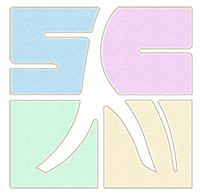
Abstract: Foreign biographies of Mao have extended from the hagiography of Edgar Snow’s pioneering work to a strongly critical assessment. In between approaches have included: “Great aims but large costs”, a “good Mao up to the later 1950s” and “bad Mao thereafter.” 1949 is the real watershed in Mao’s career. A dualism between Mao’s “revolutionary idealism” and “political realism”. Other themes include that Mao’s social engineering could have been successfully executed. Psychobiography is one methodology that can assist in uncovering the man in the leader. Four reasons explain some of the changes over time in foreign biographies: An early tendency to favor the exotic; Mao was fascinating because he was different from European Marxists. A shift in world thinking about leadership from an age of political heroes (and some villains) to a phase of skepticism about political leadership. The CCP resolution of 1981, which loosened some foreign tongues hitherto nervous about strong criticism of Mao as well as unleashing scholarly empirical work within China which benefited foreign work on Mao. New materials are the most important reason for changes over time; items such as Mao Zedong Nianpu, and Jianguoyilai Mao Zedong Wengao are other major factors for the foreign biographer. From the 1990s, a convergence occurred between Mao studies within China and those outside, in both perspective and use of materials; I argue that a polemical biography is seldom a true biography but can be justified if it is supported by evidence, and if the situation in China studies and political history shows a need for it; I conclude with notes on the unfinished tasks in Mao biography and possibilities for the future reputation of Mao.
Key words: Biography, Mao, Edgar Snow, Great Leap Forward, Cultural Revolution
Ross Terrill is Associate in Research at the Fairbank Center for Chinese Studies at Harvard and this spring Senior International Visiting Fellow at the Australian Strategic Policy Institute in Canberra. Brought up in rural Australia, a citizen of both USA and Australia, he is the author of eleven books, including The New Chinese Empire (2004), Madame Mao: The White-Boned Demon (2000), and China In Our Time (1992). His memoir WoyuZhongguo (Myself and China) was recently published in Beijing and his Mao: A Biography in Chinese has sold 600,000 copies within China since it appeared in 2006. He is a contributor to the New York Times, Wall Street Journal, Foreign Affairs, and Weekly Standard and for a decade was an Atlantic Monthly contributing editor. He won the National Magazine Award for reporting excellence and the George Polk Memorial Award for magazine reporting on China. His Ph.D. is from Harvard in political science and his other books include The Australians (2000) and Socialism As Fellowship (1973).